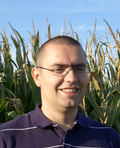Cited By
View all- Khatoonabadi SAbdellatif ACosta DShihab E(2024)Predicting the First Response Latency of Maintainers and Contributors in Pull RequestsIEEE Transactions on Software Engineering10.1109/TSE.2024.344374150:10(2529-2543)Online publication date: 1-Oct-2024
- Paradis CKazman RTamburri D(2024)Analyzing the Tower of Babel with KaiauluJournal of Systems and Software10.1016/j.jss.2024.111967210:COnline publication date: 25-Jun-2024
- Venigalla AChimalakonda S(2024)An exploratory study of software artifacts on GitHub from the lens of documentationInformation and Software Technology10.1016/j.infsof.2024.107425169:COnline publication date: 2-Jul-2024


